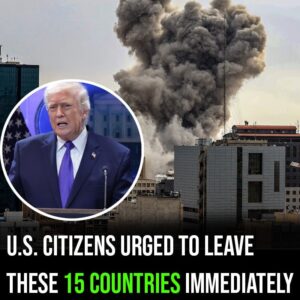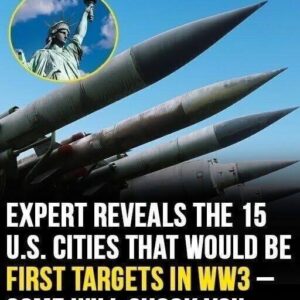Washington, D.C. — In a move that has already ignited intense national debate, multiple sources have confirmed that the Trump administration has ordered the FBI to begin armed night patrols across the U.S. capital. The directive came just hours after President Trump publicly warned that he would “federalize” the District of Columbia if local authorities failed to maintain order, a statement that set the tone for a rapid and highly visible increase in federal presence on the city’s streets.
According to senior law enforcement officials, the patrols will be carried out by heavily armed FBI tactical units, operating in both marked and unmarked vehicles, as well as on foot. These teams will be stationed at strategically chosen locations deemed “high priority” for the protection of federal property and critical infrastructure. Locations include the Capitol complex, major federal office buildings, monuments, and certain transportation hubs. Agents, dressed in black tactical gear, will also conduct roving patrols in areas flagged by intelligence analysts as possible flashpoints for unrest.
Administration insiders say the decision followed a classified intelligence briefing that outlined what officials described as “credible indicators” of planned disruptions in the capital. While the specifics of the threats remain undisclosed, the urgency of the meeting reportedly convinced key White House advisers that visible and immediate action was necessary.
A senior White House official, speaking on background, described the move as part of a “zero tolerance” strategy for unrest. “The President has made it clear—there will be no compromise when it comes to the safety of our nation’s capital. Federal law enforcement will take the lead in safeguarding federal assets, and we will not allow D.C. to spiral into chaos.”
Reactions have been sharply divided. Supporters of the measure argue that the deployment sends a strong deterrent message to those who might consider acts of violence or vandalism, especially after several high-profile incidents of property damage in recent months. “When bad actors see a federal tactical unit standing on the corner, they think twice,” said one retired federal agent familiar with the planning. “That’s exactly the point.”
Critics, however, see it very differently. Civil liberties groups, D.C. officials, and some members of Congress warn that the patrols represent a dangerous overreach of federal authority—particularly in a jurisdiction like Washington, D.C., which is not a state and has no governor to push back against federal control. “We are watching a significant escalation of federal presence in civilian spaces,” said one local council member. “It’s not just the optics—it’s the precedent this sets for federal intervention in local matters.”
Historically, presidents have invoked emergency powers to secure the capital during times of major unrest or national emergency. Past examples include Lyndon B. Johnson sending troops into D.C. after the 1968 assassination of Dr. Martin Luther King Jr., and George H.W. Bush deploying federal agents during the 1991 anti-war demonstrations. However, the regular use of FBI agents—not just for specific missions but for ongoing, armed nighttime patrols—is considered unusual and, by many experts, controversial.
Some legal scholars point out that while federal agencies have broad jurisdiction in Washington, routine street patrols by the FBI blur the traditional boundaries between local policing and federal law enforcement. “The FBI is designed for investigation and counterterrorism, not neighborhood patrols,” said a constitutional law professor from Georgetown University. “This marks a shift in how the federal government is willing to use its most powerful investigative arm.”
For residents, the change will be immediately noticeable. Starting tonight, tactical teams will take up positions across the city after dark, patrolling until the early morning hours. Some will be clearly visible, standing guard outside major landmarks. Others will move quietly through the streets in unmarked SUVs, watching for suspicious activity. The sight of black-clad agents carrying rifles in the heart of the city is expected to draw both reassurance and unease in equal measure.
Meanwhile, D.C.’s local government has been largely sidelined in the decision-making process. While city officials have expressed concerns privately, they have so far avoided direct confrontation with the administration. “We are in uncharted territory,” one municipal security advisor admitted. “We have to balance our desire for local control with the reality that federal power here is, for all practical purposes, absolute.”
Whether this heightened federal presence will achieve its stated goal—greater safety and stability—remains to be seen. Supporters argue that a show of strength now could prevent larger crises in the future. Critics warn it could instead heighten tensions, provoke unnecessary confrontations, and erode public trust in both local and federal institutions.
For now, Washingtonians are bracing for a city that, after sunset, will look and feel very different. In neighborhoods near the Capitol, residents may soon see small squads of FBI agents stationed at intersections, scanning the streets with military-grade optics. Downtown, those walking past federal buildings will hear the low hum of idling black SUVs and see shadows moving behind tinted glass. The city that has always been the symbolic heart of American democracy is about to become the stage for a very visible—and deeply divisive—experiment in federal control.
Will this strategy succeed in deterring unrest, or will it push the capital closer to the very instability it seeks to prevent? The answer may depend not just on the presence of armed patrols, but on how the people of Washington respond to them in the days ahead.





